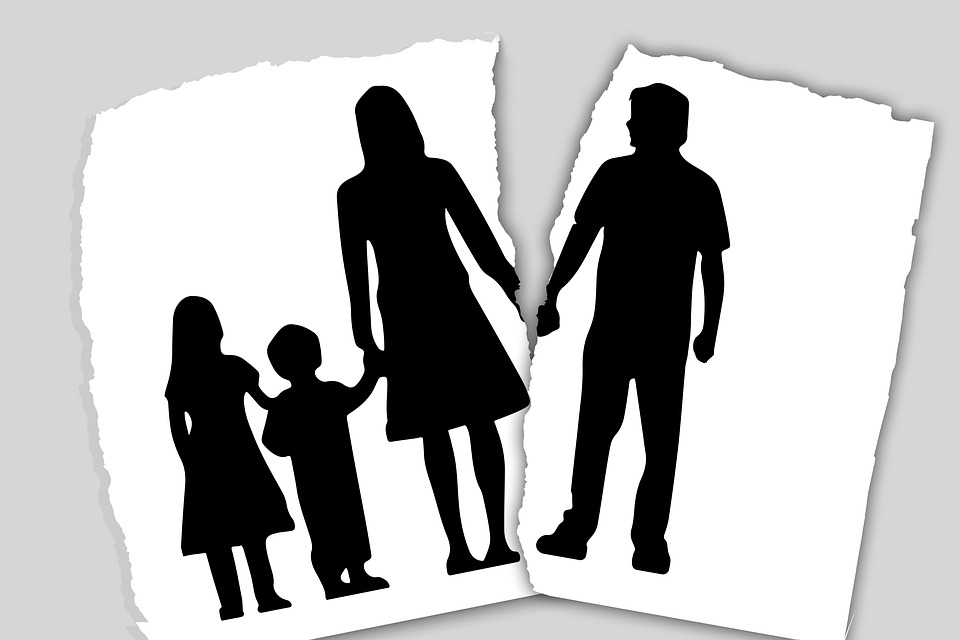
Knowing when its time to let go of your existing relationship. Some obvious signs that the end is soon approaching.

As a devoted marriage counselor, my purpose is to guide individuals in improving their romantic relationships and, in many cases, rescuing marriages teetering on the brink of divorce. Through my extensive experience, I have come to understand the multifaceted nature of healthy relationships. When couples seek my assistance, they often present their existing problems, seeking solutions—a natural expectation. However, I must prioritize the safety and well-being of all parties involved, and I cannot ignore instances of violence and abuse within a marriage.
If I were to attempt to salvage a marriage plagued by violence and abuse, I would be accepting the responsibility for potential dire consequences that the vulnerable spouse may face. As marriage counselors, our role is to provide options and alternatives to the challenges couples encounter, but we should not gauge our professional success solely by the number of marriages saved throughout our careers.
When couples come to me seeking guidance for their existing challenges, I refrain from asking the traditional question, “What brought you here today?” Instead, I shift the focus to the positive outcomes they hope to achieve during our session. By avoiding the former question, which opens the floodgates to all their problems, I create space for a more positive and productive conversation.
As counselors, it is our duty to help couples rediscover the initial reasons that brought them together—the joyful memories, the emotional and spiritual connections they experienced during their courtship. By allowing them to reconnect with the positive aspects of their relationship, rather than solely focusing on the overwhelming issues they currently face, we can foster peace of mind and enable effective communication between them. This approach does not imply avoiding discussions about their problems; rather, it encourages a different approach to addressing them.
It is undeniable that most people yearn for a long-term, committed partnership. However, the journey toward achieving this goal is often laden with challenges. Startling statistics reveal that around 50% of initial marriages end in divorce, while an even higher percentage of subsequent marriages—66% for second marriages and 73% for third marriages—ultimately meet the same fate. It is disheartening to witness so many relationships dissolve needlessly, especially when there is potential for restoration. The root cause of these failures often lies in the absence of a reliable guiding system and with that creates a very hostile environment for both couples and may be the sign to let go of what can be a very long lasting toxic relationship.

Here are some obvious signs to pay attention to when dealing with very difficult marriage.
- Loss of Hope from Both Partners: Obviously, this should be the first one to write about.
When both partners have reached a point of surrendering hope, it becomes evident through the absence of any efforts to improve the relationship. The once warm connection has now grown cold and brittle. One or both individuals may be silently awaiting the opportune moment to exit, having resigned themselves to the belief that love is no longer attainable.
Determining the right time to leave is a deeply personal decision that no one else can truly dictate. As a counselor, when someone seeks my guidance, I conduct a comprehensive assessment, delving into the intricacies of their relationship. We explore the duration of their partnership, the presence of children, their previous attempts to seek help, and the aspirations each individual holds for their future. By thoroughly examining these factors, we can gain clarity and insight to navigate the best path forward.
2. Frequent Occurrence of Betrayals
When we mention betrayals, our minds typically gravitate toward instances of sexual infidelity within certain relationships. However, it’s important to recognize that betrayals can manifest in both emotional and sexual forms. When we find ourselves lacking a sense of security and unable to rely on our partner for both physical and emotional support, it might be a sign that it is time to consider exiting the relationship.
3. Redirecting Energies Outside the Relationship
As our commitment to a relationship wanes, we may gradually find ourselves investing our energies in other connections. Sharing our genuine emotions with close friends becomes more prevalent. Our focus shifts towards external sources, and we start giving to others what we have ceased to offer our partner. This redirection of attention can be a sign that the relationship is no longer receiving the necessary care and investment, prompting the need for introspection and potential reevaluation.
4. Leading Separate Lives
While the relationship may appear intact on the surface, the truth is that both you and your partner have started living separate lives. Your individual interests and pursuits have shifted elsewhere, leaving your life with your partner feeling like a mere hollow shell. This disconnect signifies a significant gap in emotional and relational connection, highlighting the need for honest introspection and potential actions to rebuild the bond or reassess the future of the relationship.
5. Transition from Love to Hostility
Frequently, couples express moments when intense emotions make them contemplate extreme thoughts toward their partner, even while acknowledging the presence of lingering love. Similarly, some individuals admit that the love they once shared has diminished, yet they still harbor a sense of concern and desire for the revival of affection. However, when love transforms into hate, it may indicate that the relationship requires serious consideration and possibly an end.
6. Seeking Distance from the Relationship
In circumstances where relationships have become consistently unhappy, individuals or their partners may actively seek ways to create distance. They may resort to working long hours or find excuses to avoid returning home. These behaviors can be indicative of underlying dissatisfaction within the relationship, and it may be necessary to address these issues in order to restore harmony and fulfillment.
7. The Dominance of Blame and Shame in the Relationship
Nurturing care and mutual respect are essential pillars of a healthy marriage. However, in troubled relationships, a destructive pattern emerges where one partner is constantly blamed, demeaned, and subjected to derogatory remarks. This toxic behavior undermines the foundation of the relationship and inhibits its potential for growth and happiness.
8. Detrimental Impact on Your Well-being
While all relationships can be sources of stress to some extent, chronic stress stemming from a relationship can have severe consequences on your health. It can lead to various ailments, ranging from breast cancer to heart problems. If the relationship you’re in is taking a toll on your physical and emotional well-being, it might be necessary to consider leaving it in order to prioritize your overall health.
9. Unfair Attribution of Blame
In any relationship, when difficulties arise, it is common for both individuals to contribute to the problem’s existence as well as its resolution. However, if one person consistently shifts all blame onto the other and holds them solely responsible for every issue that arises, it serves as a clear sign that the relationship is trapped in a detrimental pattern, hindering progress and growth.
Frequently, individuals seek my assistance when they recognize that their relationship is facing significant challenges. Often, one person contemplates leaving, while the other remains committed to preserving the partnership. Remarkably, even relationships that appear grim and devoid of hope have witnessed remarkable progress and restoration through my guidance.
It’s important to acknowledge that not all relationships can be salvaged, and some may need to conclude in order for both partners to find renewed freedom and forge ahead with their lives.
Lingering in a stagnant and unfulfilling relationship can inflict unimaginable pain, just as leaving a relationship carries its own unique set of emotional burdens. If you find yourself grappling with the decision of whether to stay or leave, I highly recommend seeking the support of a skilled marriage counselor who can offer valuable insights and facilitate a constructive exploration of your options.

dr.dan
Related Posts
Are We Genetically Predisposed to Infidelity? Unraveling the Mysteries of Human Relationships and how NOT to fall on the many temptations when being presented.
Infidelity has long been a contentious issue within relationships, stirring...
Building emotional intimacy after the spark is gone. The many struggles couples face in the 21st century! Finding effective strategies that can work when putting in the effort!
Emotional intimacy is the bedrock of a healthy, long-lasting relationship. It...
Dating Terminologies of the 21st century: Roller coaster of uncertainties and disappointments.
Dating in the 21st century can be daunting, to say the least. With the instant...
Does the longevity of a marriage depend on the personality traits of the partners? What can we do to enhance the likelihood of maintaining a long-lasting marriage without considering divorce?
Every couple desires a strong and enduring relationship, and it appears that...



